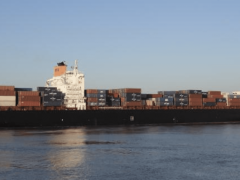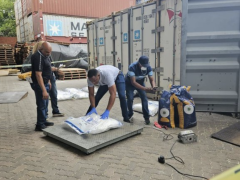With Transnet Port Terminals (TPT) declaring a force majeure (FM) over the effects of the industrial action at Durban container terminal (DCT) Pier 2 last week, a number of voices in the private sector freight industry questioned whether they actually had the right to deny claims from contracted clients. The main question was whether TPT could claim that the strike was out of their control – which effectively stated that the port management was not in control of its own work force. To sort out the legalities of this issue, FTW asked Andrew Robinson, maritime lawyer and partner of legal company Norton Rose for clarity. “The term force majeure within the context of SA law does not have any precise definition, nor is it recognised as any special doctrine. Its significance in respect of our law depends on its use as an express term in a contract. As a result of this, force majeure, and what can be defined as force majeure, is often a ground for confusion, misunderstanding and inevitable dispute in contracts.” SA law recognises the concept of supervening impossibility of performance – where an obligation cannot be performed due to a cause beyond the performer’s reasonable control. The three causes usually recognised, he added, are: * Act of God: a legal term for events outside of human control, such as sudden floods or other natural disasters, for which no one can be held responsible. * Vis maior: beyond one’s control; fault is precluded and performance rendered objectively impossible. * Casus fortuitus: intervention by the state or legislature which renders performance impossible. “These are the three incidents in SA common law where a party is not obliged to perform a contractual obligation,” Robinson said. “The Roman-Dutch common law provides its own remedy of supervening impossibility of performance. This is not a term of a contract (as the FM clause is) but a defence that can be relied upon when a party is sued for non-performance. The non-performing party must show that its performance is prevented or delayed by an event that falls within the category of vis maior or casus fortuitus – that is, it did not exist at the time the contract was entered into but arose thereafter (supervening event), it cannot be overcome and was beyond the reasonable control of the party that could not perform.” If TPT wished to use force majeure as a defence against claims, it could not declare this generally to its public. It would need to be contained within contracts with individual clients. And, said Andrew Thomas, CE of Ocean Africa Container Line (OACL): “I suspect that some of the carriers may have contract arrangements.” But would claims from lines for non-performance then be defensible by force majeure being contained in these contracts? “It could be difficult for employers to declare force majeure when their own labour is on strike,” Robinson said.












